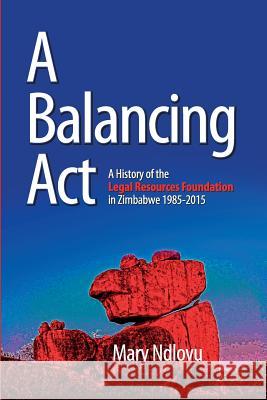A Balancing Act: A History of the Legal Resources Foundation 1985-2015 » książka
A Balancing Act: A History of the Legal Resources Foundation 1985-2015
ISBN-13: 9780797476127 / Angielski / Miękka / 2016 / 396 str.
Zimbabwean independence in 1980 demanded a thorough revision of the way in which the law was provided in order to dispense with any form of discrimination based on race or class. The ideals and principles behind this requirement had many practical implications in terms of provision, access, information and education, as well as a profound understanding of tradition and customary law. It was these manifold challenges that gave rise to the Legal Resources Foundation. A Balancing Act: A History of the Legal Resources Foundation 1985-2015 examines the impulse, growth, development of an NGO which has steadfastly sought to bring law to the people of Zimbabwe over three turbulent decades. Through a study of its outreach, publication, advocacy and education programmes, the author, Mary Ndlovu implicitly explores the social, economic and political framework of society and the state that determined the LRF's trajectory. As the renowned jurist Reg Austin writes, 'Examined from the perspective of its ambitious objectives and the range of its activities, this study of the LRF sheds an important light on a vital part of Zimbabwe's national history. The book is an important addition to the national literature on the role of the non-governmental sector.'
Zimbabwean independence in 1980 demanded a thorough revision of the way in which the law was provided in order to dispense with any form of discrimination based on race or class. The ideals and principles behind this requirement had many practical implications in terms of provision, access, information and education, as well as a profound understanding of tradition and customary law. It was these manifold challenges that gave rise to the Legal Resources Foundation. A Balancing Act: A History of the Legal Resources Foundation 1985-2015 examines the impulse, growth, development of an NGO which has steadfastly sought to bring law to the people of Zimbabwe over three turbulent decades. Through a study of its outreach, publication, advocacy and education programmes, the author, Mary Ndlovu implicitly explores the social, economic and political framework of society and the state that determined the LRF’s trajectory.As the renowned jurist Reg Austin writes, ‘Examined from the perspective of its ambitious objectives and the range of its activities, this study of the LRF sheds an important light on a vital part of Zimbabwe's national history. The book is an important addition to the national literature on the role of the non-governmental sector.’











